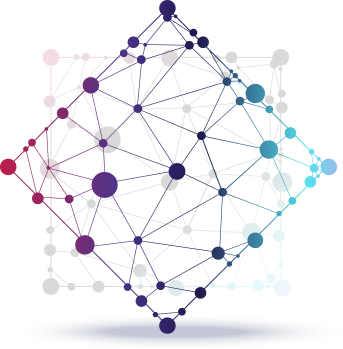- Momentum Shifts: Global events news today demand attention and redefine tomorrows landscape.
- Geopolitical Realignment and International Relations
- Economic Volatility and Financial Markets
- The Impact of Inflation on Consumer Spending
- Supply Chain Resilience and Diversification
- Technological Advancements and Digital Transformation
- The Rise of Artificial Intelligence in Various Sectors
- Cybersecurity Threats and Data Protection
- Environmental Sustainability and Climate Change
Momentum Shifts: Global events news today demand attention and redefine tomorrows landscape.
The global landscape is in constant flux, and staying informed about current events is more critical than ever. Recent developments across geopolitical, economic, and social spheres are rapidly reshaping our world, demanding attention and prompting critical assessment. Understanding these shifts is essential for individuals, businesses, and governments alike to navigate the complexities of the 21st century. Keeping abreast of news today allows for proactive decision-making and informed engagement with the world around us.
This article delves into some of the most significant events unfolding globally, analyzing their potential impact and implications for the future. From evolving international relations and financial market volatility to technological advancements and environmental concerns, we will explore the forces driving change and the challenges they present. The article offers a comprehensive overview to facilitate informed perspectives on the evolving global narrative.
Geopolitical Realignment and International Relations
The international order is undergoing a period of significant realignment, characterized by shifting power dynamics and increased competition. Traditional alliances are being tested, and new partnerships are emerging as nations pursue their strategic interests. The rise of emerging economies and the re-emergence of great power competition are contributing factors to this complex landscape. This is especially evident in the shifting relationships between major players like the United States, China, Russia, and the European Union.
Recent diplomatic initiatives and security concerns have highlighted the need for careful navigation in this intricate environment. International organizations such as the United Nations and regional bodies are facing increased scrutiny as they attempt to address global challenges. A deep dive into these relations unveils the challenges and opportunities present in a multi-polar world.
| United States | Maintaining global influence, economic stability | Strengthening alliances with NATO countries, dialogues with China |
| China | Expanding economic reach, technological advancement | Belt and Road Initiative, increased engagement in Africa and Latin America |
| Russia | Regional security, energy dominance | Ukraine conflict, diplomatic efforts in the Middle East |
Economic Volatility and Financial Markets
Global financial markets are experiencing increased volatility influenced by various factors, including inflation, interest rate hikes, and supply chain disruptions. The interconnectedness of the global economy means that events in one region can have ripple effects worldwide. Investors are becoming increasingly cautious, leading to fluctuations in stock markets and currency values. Understanding these trends is crucial for businesses and individuals managing their financial resources.
The potential for economic recession looms large in several major economies, as central banks attempt to curb inflation without triggering a severe economic downturn. This delicate balancing act presents significant challenges for policymakers. Monitoring key economic indicators and anticipating potential risks are indispensable for informed economic planning. Inflationary pressures are impacting cost of living worldwide, creating certain hardship for many countries.
- Interest rate adjustments by central banks
- Supply chain disruptions affecting production costs
- Geopolitical conflicts impacting energy prices
- Fluctuations in commodity markets
- Shifting investor sentiment and market confidence
The Impact of Inflation on Consumer Spending
Inflation erodes purchasing power, leading to reduced consumer spending and potential economic slowdown. As the cost of essential goods and services rises, households are forced to prioritize spending, cutting back on discretionary items. This shift in consumer behavior can have a significant impact on businesses, particularly those reliant on discretionary spending. This effect is further compounded by the rising cost of borrowing, as interest rates increase to combat inflation, making it more expensive for consumers to finance purchases.
The long-term consequences of sustained inflation can be particularly damaging, leading to decreased investment, reduced economic growth, and social unrest. Governments and central banks are actively implementing measures to address inflation, but the effectiveness of these measures remains to be seen. Monitoring consumer confidence and tracking spending patterns are critical for gauging the health of the economy.
Different sectors are impacted in distinct ways. Healthcare and essential goods tend to remain relatively stable in demand, while luxury goods and entertainment often experience a sharp decline in consumer interest. This divides the economy, placing stress on some companies while others remain stable.
Supply Chain Resilience and Diversification
Recent disruptions to global supply chains have highlighted the importance of resilience and diversification. Over-reliance on single-source suppliers has exposed vulnerabilities that have led to shortages and increased costs. Businesses are now actively exploring strategies to diversify their supply chains, reducing their dependence on any single supplier or region. Building more robust and flexible supply chains is crucial for protecting against future disruptions.
Investing in nearshoring and reshoring initiatives, where production is brought closer to the end consumer, is also gaining traction. These strategies can reduce transportation costs, shorten lead times, and enhance supply chain security. Utilizing technology, such as blockchain, to improve supply chain transparency and traceability is also being explored. The need for proactive risk management and careful planning is paramount amidst ongoing global uncertainties.
This is extending to reliance on singular electricity sources. Diversifying electric sources is becoming a global trend, with countries actively developing other forms of generating renewable energies to ensure sustainability.
Technological Advancements and Digital Transformation
Technological advancements are accelerating at an unprecedented pace, driving significant changes across industries and societies. Artificial intelligence (AI), machine learning, and the Internet of Things (IoT) are transforming how we live and work. These technologies have the potential to address some of the world’s most pressing challenges, but also present new risks and ethical dilemmas. Adapting to this rapidly evolving technological landscape is crucial for staying competitive and harnessing the benefits of innovation.
The digital transformation is reshaping business models, creating new opportunities for growth and innovation. Businesses are leveraging data analytics, cloud computing, and other digital tools to improve efficiency, enhance customer experiences, and gain a competitive edge. However, the digital divide and concerns about data privacy and security remain significant challenges. Ensuring equitable access to technology and protecting data are essential for fostering a responsible and inclusive digital future.
- Artificial Intelligence and Machine Learning
- The Internet of Things (IoT)
- Blockchain Technology
- Cloud Computing
- Cybersecurity Measures
The Rise of Artificial Intelligence in Various Sectors
Artificial intelligence (AI) is rapidly transforming industries, offering the potential for increased efficiency, improved decision-making, and new product development. From healthcare and finance to transportation and manufacturing, AI is being deployed in a wide range of applications. However, the ethical implications of AI, including job displacement and algorithmic bias, require careful consideration. Developing responsible AI frameworks and ensuring transparency are crucial for mitigating these risks.
The application of AI in areas such as drug discovery, personalized medicine, and disease diagnosis holds immense promise for improving healthcare outcomes. In the financial sector, AI is being used for fraud detection, risk assessment, and algorithmic trading. In the transportation industry, self-driving cars are poised to revolutionize how we travel.
The adoption of AI also requires a skilled workforce capable of developing, deploying, and maintaining these complex technologies. Investing in education and training programs is essential for preparing workers for the jobs of the future. Furthermore, establishing clear legal and regulatory frameworks is needed to ensure that AI is used ethically and responsibly.
Cybersecurity Threats and Data Protection
The increasing reliance on digital technologies has also led to a surge in cybersecurity threats. Cyberattacks are becoming more sophisticated and frequent, targeting businesses, governments, and individuals alike. Protecting critical infrastructure, safeguarding sensitive data, and maintaining online security are paramount. Investing in robust cybersecurity measures and fostering international cooperation are essential for mitigating these risks.
Data breaches can have devastating consequences, including financial losses, reputational damage, and identity theft. Organizations must implement strong data protection protocols and comply with relevant privacy regulations. Raising awareness among individuals and businesses about cybersecurity best practices is also crucial for strengthening overall security posture.
Staying ahead of emerging threats requires continuous monitoring, intelligence gathering, and proactive defense strategies. Collaboration between governments, industry, and security experts is essential for effectively addressing the evolving cybersecurity landscape.
Environmental Sustainability and Climate Change
Climate change remains one of the most pressing challenges facing the world today. Rising temperatures, extreme weather events, and sea-level rise are already having a significant impact on communities and ecosystems worldwide. Transitioning to a sustainable low-carbon economy is essential for mitigating the effects of climate change and protecting the planet for future generations. International cooperation and ambitious policy measures are needed to accelerate the pace of change.
Investing in renewable energy sources, such as solar, wind, and geothermal, is crucial for reducing greenhouse gas emissions. Improving energy efficiency, promoting sustainable transportation, and adopting circular economy principles are also important steps. The need to decarbonize economies and create a more sustainable future is now widely recognized.
| Solar | 1,000 | 3,000 |
| Wind | 800 | 2,000 |
| Hydro | 1,200 | 1,500 |
Addressing climate change requires a collective effort involving governments, businesses, and individuals. Implementing effective environmental policies, promoting sustainable consumption patterns, and fostering innovation in green technologies are all essential for creating a more sustainable future.



